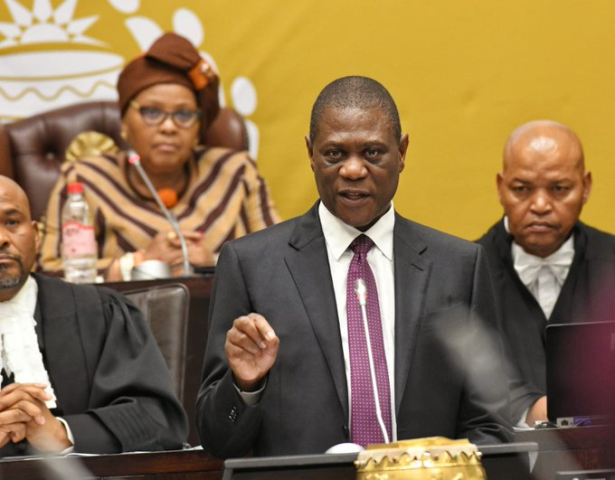SA Drives Economic Revitalization in Townships, Manufacturing, and SOEs with New Initiatives
One primary initiative is the Industrial Parks Revitalisation Programme (IPRP), developed by the Department of Trade, Industry and Competition (dtic).

- Country:
- South Africa
The South African government, committed to addressing apartheid-era spatial inequalities, is advancing efforts to transform township and rural economies through strategic investment in critical sectors like manufacturing. Deputy President Paul Mashatile, addressing the National Council of Provinces (NCOP), highlighted key programs designed to create jobs and stimulate economic growth in communities across South Africa.
One primary initiative is the Industrial Parks Revitalisation Programme (IPRP), developed by the Department of Trade, Industry and Competition (dtic). The program targets the renewal of abandoned and underutilized industrial parks, focusing on job creation in the manufacturing sector for marginalized areas. Notable examples include the Nkowankowa Industrial Park in Tzaneen, which hosts Peppadew International as a major tenant, employing 66 farmers, 348 permanent employees, and creating 5,000 indirect jobs through contracted farming activities. Other revitalized parks include Isithebe in Mandeni, Matjhabeng in Free State, and Wild Coast in Mthatha.
To further promote local manufacturing, the government has allocated R266.8 million to the Small Enterprise Manufacturing Support Programme (SEMSP) as announced by Minister of Small Business Development Stella Ndabeni-Abrahams. This program complements the Black Industrialist Programme, fostering greater involvement of small enterprises in the manufacturing sector.
In addition to these industrial parks, the government supports 11 designated Special Economic Zones (SEZs), intended to boost economic activity in underdeveloped regions. Supported by the SEZ Fund, these zones have attracted R19.6 billion in investments, according to Mashatile. These SEZs are part of a broader collaboration between the public and private sectors, supported by National Treasury’s Cities Support Programme and the Township Economic Development Framework. Integrated development strategies are already underway in Tembisa and Ekurhuleni (Gauteng) and New Brighton (Eastern Cape).
National State Enterprises Bill RevivalIn his address, Deputy President Mashatile referenced the revived National State Enterprises Bill, an initiative aiming to establish a centralized ownership model for State-Owned Enterprises (SOEs) to improve governance, accountability, and operational efficiency. Under the proposed model, SOEs will report to relevant line ministries, moving away from the Department of Public Enterprises. The Bill, in alignment with President Cyril Ramaphosa’s objectives, will establish State Asset Management SOC Ltd, tasked with governance and oversight to prevent undue political interference.
Mashatile emphasized the Bill’s importance in reshaping SOEs, stating that the governance model will protect SOEs from political influence, granting them autonomy in operations and oversight functions. The Minister in the Presidency for Planning, Monitoring, and Evaluation has been appointed to spearhead the establishment of the new State Asset Management entity.
In closing, Mashatile reiterated the government’s resolve to foster a capable, ethical, and growth-oriented public sector. The administration aims to remove obstacles to economic progress, prioritizing transparency and efforts to eliminate fraud, corruption, and inefficiencies in the public sector.










